Or, what my avocado tree has to say about world relations
An avocado tree sits in our backyard, a thin little tree that looks like it’s had a hard time living under the shadow of the big mango tree beside it. For the first few years we were here, the avocados that dropped from this tree were terrible—hard and bitter, always rotting before they ripened. Fair enough, I thought. This tree doesn’t have enough room.
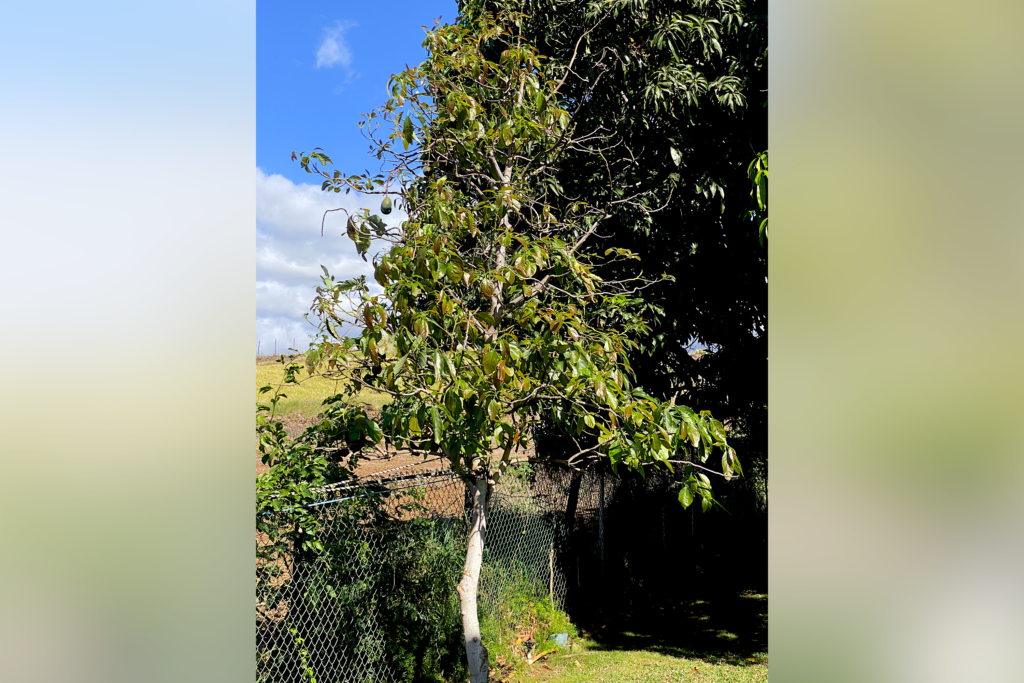
This year the fruit started ripening on the tree as usual. I would glance out the window and notice those fat orbs hanging on the branches, round and full and twinkling in the sun like heavy dark Christmas ornaments. Still I didn’t hold out any hope. They would probably be hard and bitter again as usual. After all, the tree itself was looking nearly dead. Its broad leaves had shriveled and were dropping to the ground, brown and crispy.
Before all the leaves had fallen, the first few avocados dropped to earth as well. They were rock hard as usual. But they were … perfect. Round and beautiful, nearly glowing. No rotting spots at all. I took a couple inside and set them on the counter to ripen, just in case.
We waited some days, then some more days. Finally the flesh began to soften. I squeezed them with amazement—still no brown spots.
A day or two more to ripen, and it was time. I pierced one with a paring knife and drew the blade in a circle around the pit. Soft flesh, no resistance. I pried it open.
And the inside was … perfect. Tim and I each grabbed a teaspoon and dug into our own half. The avocado tasted like heaven. Delicate. Soft and creamy, melting like butter on the tongue.
The next day I picked up another one from the ground. It too was perfect. So were the following ones. Even if ants or birds had started nibbling first, each avocado ripened to perfection—creamy and sweet and marinated in sunshine.
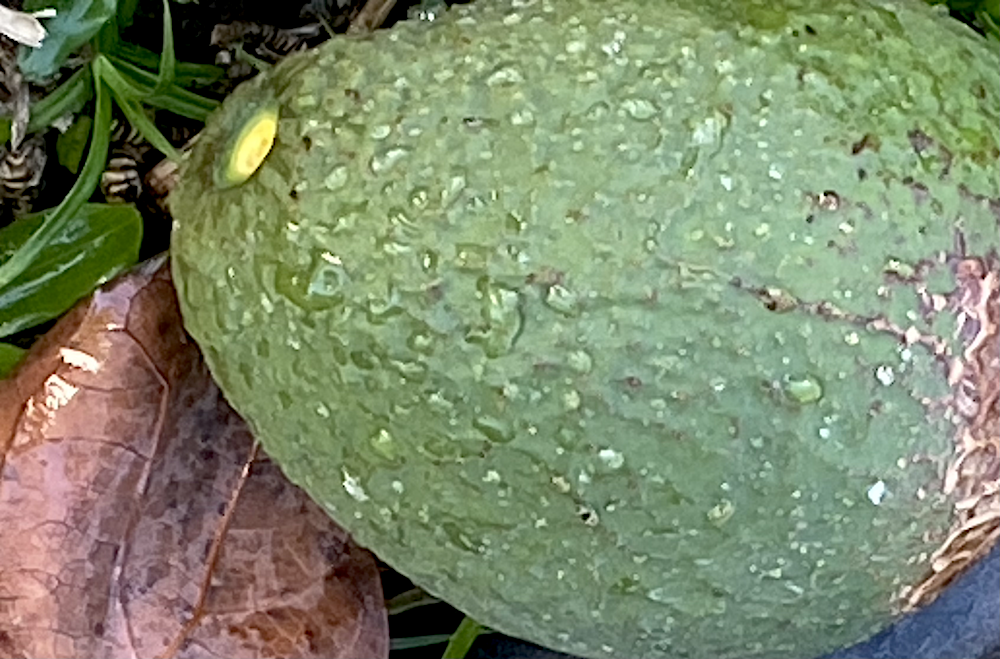
And as the avocados fell, the branches above started sending out leaves, shiny, fresh, new. Perfect avocados on the ground, a fountain of soft green leaves above. The tree was bursting with springtime.
I texted the owners of this property, who live in the house next to us: “The avocados this year are perfect!” Instantly they texted back: “Because,” they said, “we gave your compost to the tree!”
Ah, my compost! So here’s another story. I have this worm bin in the kitchen—a low square black plastic frame with a couple of trays to hold red wigglers, the kind of worms who love kitchen garbage. I bought the bin soon after we moved to Maui and found out there’s no paper recycling here. A farmer from across the island sold me a jar of dirt with about fifty red wigglers inside. Maybe, I thought, the worms can help us reduce our garbage.
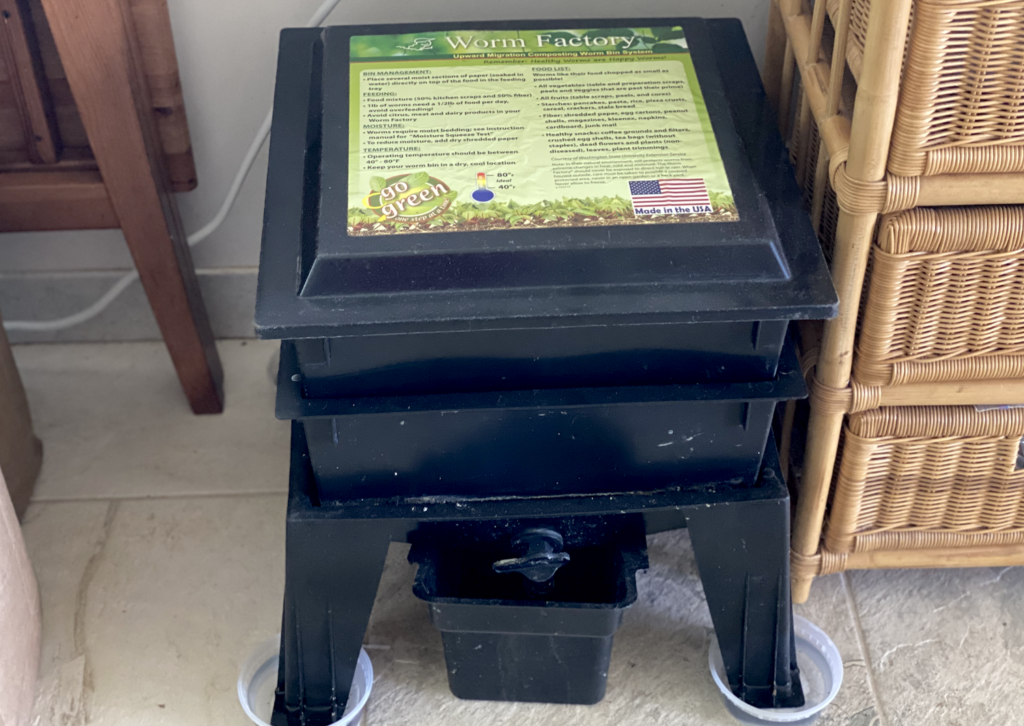
So I shredded up some scrap paper and spread it out in the bottom of a tray, added a few veggie cuttings on top, and finished with another layer of shredded paper. Then I released the worms and their dirt into their new home. Every few days I added more veggie scraps and more paper.
The worms loved their new digs. Soon they were using up all our scrap paper and almost all our kitchen waste as well. Now we have maybe five hundred small roommates, and they are preventing about a bag of trash a week from entering the landfill.
Once a year or so I empty out the bottom tray from the bin. The tray is always full of thick black slush, bursting with new life. I bag it up and give it to our landlord and landlady for the yard. This too has a story: as soon as I gave them the first compost, our relationship, which had been polite but distant, warmed up more than a few degrees.
Getting this text from them now about the avocado tree makes me so happy. In fact, I have a hard time expressing just how happy it makes me feel. My compost helped heal the tree. The joy I feel goes deeper than I have words for. I feel connected to the tree in a way I didn’t before. We have a relationship with each other now, a direct one. A you-me thing. We trade gifts. I send dirt; the tree sends jewels of buttery lusciousness. It’s the kind of gift giving that people do with close friends or lovers or family.
I feel deeply nourished, in soul as well as body. It’s a happy satisfied feeling, as if all is well.
And I think, How little it takes to create this feeling of well-being! How little it takes, really, to live in right relation! How simple it is, really, to thrive.
 All that anyone wants is just to be treated right. Children simply need the food and love and encouragement that tell them they are cherished. All any of us needs to thrive is to know that we are seen and loved—that we matter, that our gifts make a difference, that we are respected for who we are. We just want to be treated fairly.
All that anyone wants is just to be treated right. Children simply need the food and love and encouragement that tell them they are cherished. All any of us needs to thrive is to know that we are seen and loved—that we matter, that our gifts make a difference, that we are respected for who we are. We just want to be treated fairly.
These are the elements of right relation, and they are pretty simple, really. We want them for ourselves, and it’s pretty clear others want them too. If we wonder what others might need, just look inside ourselves and we have a good clue: they need what we need.
As Jesus said so long ago, “Love your neighbor as yourself.” It’s the whole teaching, he said. It sums up everything.
 The gifts the tree and I give each other are made of earth. My version is the rich black slush of worm compost; the tree’s is green orbs of delicious fruit.
The gifts the tree and I give each other are made of earth. My version is the rich black slush of worm compost; the tree’s is green orbs of delicious fruit.
It’s a good reminder that every gift is made of earth. After all, we are earth, the tree and I, each of us crafted from dirt and sunshine. Every part of us grew from earth—every cell of tree bark and human skin, every molecule of leaf and hair. And everything each of us makes we make from earth, whether it’s the fruit the tree produces or the books I write and the clothing and desks and keyboards I use to write them. Every object humans use is but earth in another form. We ship earth around the globe in containers of metal earth to satisfy desires for yet more versions of earth.
Our whole economy is simply exchanging pieces of earth.
Which is why, for nature—and therefore people—to thrive, the exchanges need to be equal, the way the tree and I trade compost and fruit. Earth has a ledger, and it always wants to be balanced. Earth given and earth received—reciprocity is what allows the whole community to flourish. It’s the fuel that allows life to keep springing forth in newness. Giving and receiving in trades that are fair and balanced—it’s how bodies can be whole and hearts joyful.
 A trade that benefits one party at the expense of another is malnourishing—in soul as well as body. Trees who are deprived of sunshine or water or nutrients can’t produce good fruit. Human beings who are deprived of food or love will also produce stunted fruit. Their imagination falters, their heart shrinks, they become unable to give back.
A trade that benefits one party at the expense of another is malnourishing—in soul as well as body. Trees who are deprived of sunshine or water or nutrients can’t produce good fruit. Human beings who are deprived of food or love will also produce stunted fruit. Their imagination falters, their heart shrinks, they become unable to give back.
But when a tree does not produce good fruit, we don’t stand back and blame the tree for not getting what it needs. We rush to provide water and nutrients, hoping to encourage it back to health. We don’t say the tree is mooching off us; we don’t call it a parasite.
Yet when a person cannot get enough food, this is exactly what others say about them, usually others who have more, others who may be the wealthiest in the land.
 A billionaire is a locus of taking. A billionaire is a node of unequal trades—many, many unequal exchanges that allowed them to accumulate far more than others over time. It is said that a billionaire is a policy failure—and it is—but it is also a moral failure. If we worship wealth in this country—and we do—it is an indictment not only of how we revere “more” but also how deeply we believe that those who have more are somehow smarter or better or more fit than those who have less.
A billionaire is a locus of taking. A billionaire is a node of unequal trades—many, many unequal exchanges that allowed them to accumulate far more than others over time. It is said that a billionaire is a policy failure—and it is—but it is also a moral failure. If we worship wealth in this country—and we do—it is an indictment not only of how we revere “more” but also how deeply we believe that those who have more are somehow smarter or better or more fit than those who have less.
The truth is rather the opposite. Those who have more have it at the expense of those who have less. At the current moment, 50 percent of everyone’s labor around the world, every day, every year, goes to increase the riches of only 5 percent of the human race.
The very rich become that way through taking more than their share—directing more of the profits to themselves, taking the lands and labors and energies of others. Taking from others in such quantities requires tremendous resources to begin with—laws to favor wealth, power to enforce those laws, philosophers to provide justification. Poor people cannot take from others because they do not have the resources to make such taking possible. The means of taking belong to the rich.
 Think about debt. It’s a set of rules designed to transfer resources from people who have little to others who have more than they need. The mechanism is compound interest. No debtor decides to pay back their loan with 5 or 10 or 20 percent interest. This rate has been decided by lenders. Yet compound interest makes loans increasingly impossible to repay. It’s a simple mathematical reality: when an interest rate is larger than the economy’s rate of growth, the debt will always grow faster than the debtor can repay. A person’s income grows with the rate of the economy. But a debt with a higher rate of interest is always growing faster. It’s inevitable: the debtor falls further behind.
Think about debt. It’s a set of rules designed to transfer resources from people who have little to others who have more than they need. The mechanism is compound interest. No debtor decides to pay back their loan with 5 or 10 or 20 percent interest. This rate has been decided by lenders. Yet compound interest makes loans increasingly impossible to repay. It’s a simple mathematical reality: when an interest rate is larger than the economy’s rate of growth, the debt will always grow faster than the debtor can repay. A person’s income grows with the rate of the economy. But a debt with a higher rate of interest is always growing faster. It’s inevitable: the debtor falls further behind.
So the trade is not a fair one. The lender is receiving more than their share. And every debtor is thus subsidizing their lender, sending scarce resources to those who already have more.
The pattern is true not just for individuals within a country but between nations at an global level. The countries of the Global South took out loans from countries in the North that they have been repaying for decades. But the countries in the South are locked in to terms of the loans that were set by the North. The poorer countries are forced to keep engaging in trades that allow richer countries to keep taking from them.
 Most Americans today occupy both roles—a person forced to give what they have to the rich but also a person taking more than their share of the world’s wealth. I have credit card debt that I’ve been repaying for years, but the high rates of interest are by definition predatory, far larger than the economy’s rate of growth, which right now is under 3 percent. So in my own country I am subsidizing the rich. Yet at the same time, just by being an American, I am taking the resources of people in poor countries as the US collects payments on those international debts.
Most Americans today occupy both roles—a person forced to give what they have to the rich but also a person taking more than their share of the world’s wealth. I have credit card debt that I’ve been repaying for years, but the high rates of interest are by definition predatory, far larger than the economy’s rate of growth, which right now is under 3 percent. So in my own country I am subsidizing the rich. Yet at the same time, just by being an American, I am taking the resources of people in poor countries as the US collects payments on those international debts.
I am also taking more than my share of the world’s clean air. When it comes to climate change, there is a budget for the amount of carbon dioxide that each person can produce without worsening global warming. The limit is 7 tons of carbon per person per year. People in poor countries may burn only 2 or 3 tons of carbon each year; they are not contributing to climate change. But the average American burns, every year, 35 tons of carbon—many times our fair share of the carbon budget. If we want a livable climate for the children of the future, we Americans will have to change our way of life. To make our trades with others equal, in air and water and earth, we need to drastically reduce our fossil fuel use. We need to stop taking a livable climate from others.
 I think at some level most of us know about these unfair trades. We certainly feel the squeeze on our budgets from financial systems that favor the rich. At the same time, we know we are benefiting unfairly, compared to others in the world, from those same systems.
I think at some level most of us know about these unfair trades. We certainly feel the squeeze on our budgets from financial systems that favor the rich. At the same time, we know we are benefiting unfairly, compared to others in the world, from those same systems.
Knowing we being exploited is depressing. So is knowing that we are exploiting others. It raises up feelings of guilt and shame and even despair when it seems like there’s so little we can do to change things.
An unfair trade wilts the heart. It fills the souls of those who are exploited with resentment; it fills the hearts of those who exploit with arrogance or shame or both. An unfair trade limits everyone’s thriving.
The simplicity of my trade with the avocado tree has something profound to say about world relations. Trades that are fair and equal gladden the heart. Everyone thrives.
We can change our systems. We made the rules, and we can change them too. They do not belong to the economy of Earth; in fact, they flow against nature’s ways. To survive, we will have to change them.
A line from Dr. Lyla June Johnston of the Diné people runs always uppermost in my mind: “We are not our systems.” It means we can write fairer rules. We can choose to live by nature’s ways. In the economy of Earth, everyone gets poorer when those who have more keep it for themselves. So we can create different systems. We can write rules to share the gifts of the Earth. We can spread around the profits of everyone’s labor.
When the ledger of Earth is balanced, no one gets super rich. No one can get super rich. But everyone can thrive.
 There is enough here for everyone. Economists tell us that right now we could provide a decent standard of living for eight-and-a-half billion people by using less than a third of the energy and materials we now use. But it has to be arranged differently—all of it. The whole economy. All our trades—they have to be fair ones. They have to be more like my backyard, where the tree and I are giving each other sustenance not because either of us has done something special to deserve it but just because we’re standing next to each other and we make what the other one needs. I make compost; the tree makes fruit. We benefit each other.
There is enough here for everyone. Economists tell us that right now we could provide a decent standard of living for eight-and-a-half billion people by using less than a third of the energy and materials we now use. But it has to be arranged differently—all of it. The whole economy. All our trades—they have to be fair ones. They have to be more like my backyard, where the tree and I are giving each other sustenance not because either of us has done something special to deserve it but just because we’re standing next to each other and we make what the other one needs. I make compost; the tree makes fruit. We benefit each other.
This is the real law of the jungle: that everyone gets what they need because everyone shares what they make so it can benefit others. No questions asked, no means testing, no hoarding, no holding back. The economy of Earth is all about sending one’s gifts outward and receiving others’ gifts in return. This is how the Earth can keep springing forth with fresh life. This is how the magnificent web of life on Earth can flourish.
Our yard is stronger and more beautiful when the trees get what they need to produce their best fruit. Our world is stronger and more beautiful when everyone gets what they need to release their best gifts.
It’s all about right relations. Living in alignment with the Earth ledger. Giving and receiving in balance, in reciprocity.
 The avocado tree is fully leafed out now. I’ve been heading out to visit the tree several times a day to scout the ground for freshly fallen fruit. Sometimes birds and ants enjoy the feast first; sometimes we do. Today only four fruits are left hanging on the tree, so the bounty will soon come to an end. But my belly is full, and my heart is fuller still.
The avocado tree is fully leafed out now. I’ve been heading out to visit the tree several times a day to scout the ground for freshly fallen fruit. Sometimes birds and ants enjoy the feast first; sometimes we do. Today only four fruits are left hanging on the tree, so the bounty will soon come to an end. But my belly is full, and my heart is fuller still.
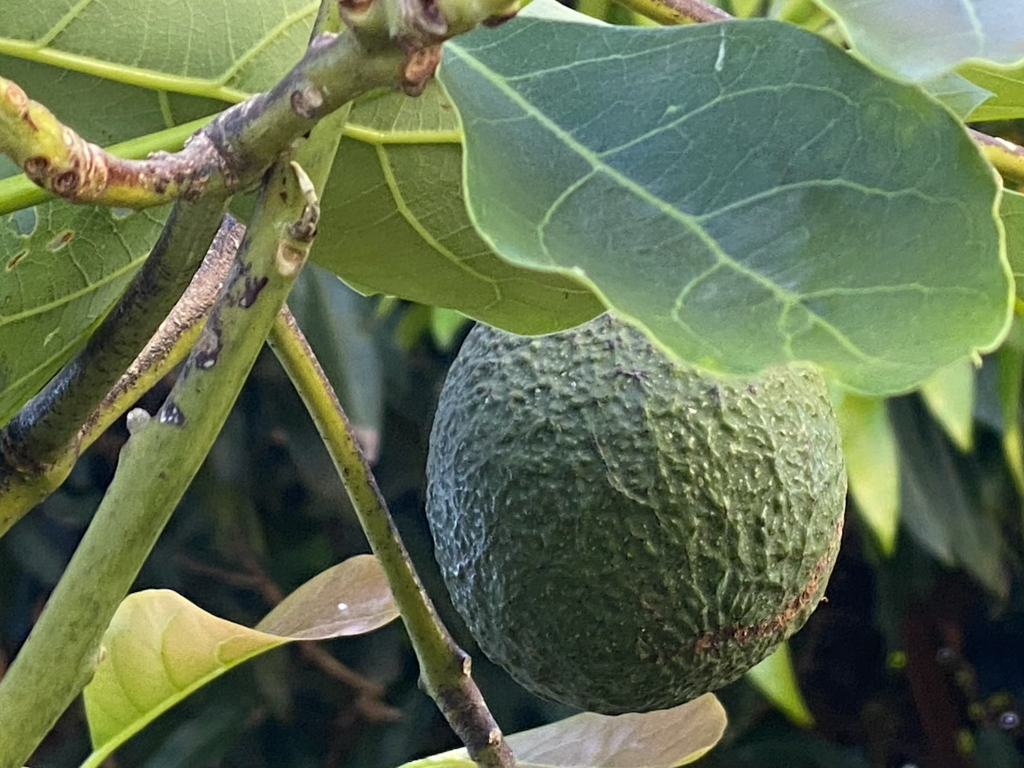
I swallowed sunshine from the tree; I felt the deep joy of contributing to those fat orbs of buttery deliciousness. It feels good to give your neighbor what they need and then watch them thrive. Especially when their fruit drops at your feet. I am reveling in joy, in the deep satisfaction of living in right relation with the tree.
The tree and I were separate from each other, planted near each other but not connected. Now we flow together, passing our gifts back and forth. The river of life between us is unimpeded. Both of us can thrive.
It’s the world I want for neighbors everywhere. It’s the world we can make for one another, if we want it. If we love it enough to keep trying.
I suspect many of you have stories from your garden about feeling “just right” after digging your hands in dirt. Do you too think gardening might just save human life on Earth? Tell us a story! Or tell us what you resonate with in this episode. How do you envision a fairer, happier world? Let us know in the comments!
For digging deeper
I have learned much from each of the sources here about how central the problem of inequality is in creating and worsening all our ecological challenges. Links to titles point to Bookshop.org where possible, an online outlet where you can buy books and support your local bookstore at the same time.
On poverty: Matthew Desmond, Poverty, by America (Crown, 2023). “Poverty is a social choice” is the learning I take away from this book, by a Pulitzer Prize–winning sociologist.
Bishop Ambrose of Milan (4th c.), a mentor of Augustine, understood how the economy works: “It is not from your own property that you give to the poor. Rather, you make return from what is theirs. For what has been given as common for the use of all, you have appropriated to yourself alone. The earth belongs to all, not to the rich. Therefore you are paying a debt, not bestowing a gift.” I’ve been fascinated by Ambrose for years, and I talked more about him and about the early church’s vision for economic fairness in Kissed by a Fox, chap. 12. (Disclosure: When you order my books from my page on Bookshop.org, I get a little bit extra.)
On racism: Isabel Wilkerson, Caste: The Origins of Our Discontents (Random House, 2020). Wilkerson delves into how racism is not merely racism but entrenches a whole system of inequality that becomes fixed like a caste system more than merely a class system. Especially shocking is her research revealing how the Nazis studied American racism in order to learn how to intensify and legalize German race hatred.
On economic democracy: Jason Hickel, The Divide: Global Inequality from Conquest to Free Markets (Random House, 2018). Hickel is an economic anthropologist who teaches at the London School of Economics. In The Divide he shows the need to move our thinking in the Global North away from a paradigm of charity and “help” and toward justice for people in the Global South. For a one-hour, very informative introduction to his work, see his Google talk, “The Divide: A Brief Guide,” Nov. 13, 2020. He said during that talk, “The global economy is so disproportionate that the richest 5 percent of the human population captures almost half of global GDP every year. That means that half of all the labor we render and all the resources we dig up and all the emissions we emit go to making the global 5 percent richer. Which is crazy. It’s a fundamentally insane system.”
The numbers on providing a decent standard of living for all also come from Jason Hickel, on Twitter: “We know it is possible to provide decent living standards (DLS) for 8.5 billion people with 30% of current global energy and material use, by ensuring efficient technologies and focusing production on socially necessary goods and services,” @jasonhickel, Jan. 24, 2025. The problem, he says, is that our production is so far removed from what is socially necessary because it is focused instead on increasing capital (increasing the resources of the already rich).
On debt and interest: I have learned much from two anthropologists, David Graeber, Debt: The First 5000 Years (Melville House, 2014); and Michael Hudson, . . . And Forgive Them Their Debts: Lending, Foreclosure and Redemption from Bronze Age Finance to the Jubilee Year (ISLET-Verlag, 2018). The relationship between interest on a personal debt and overall economic growth comes from Hudson.
On climate justice: If you’re curious how much carbon your household emits per year, count it up with this carbon calculator from the Cool Climate Network at the University of California, Berkeley. Those who study carbon emissions say that the biggest impacts we can make through our most personal decisions are in the areas of flying, driving, and eating meat. Changing habits in one or all of these areas will decrease our carbon burning immensely. For example, one round-trip cross-country flight burns more than 1 ton of carbon. See Kimberley Nicholas, Under the Sky We Make: How to Be Human in a Warming World (Putnam, 2021). As Kim says, “You don’t have to be perfect, you just have to be brave.” Figures on the global carbon budget and how drastically Americans are blowing it come from Jason Hickel in his Google talk, “The Divide: A Brief Guide,” Nov. 13, 2020. For many years I blew my annual share of the world’s carbon budget through flying alone. I explored my own excess burning in “What We Truly Burn For,” Sept. 18, 2022.
On changing our systems: Lyla June Johnston (Diné) says, “We are not our systems,” in her TEDx talk, “3000-year-old Solutions to Modern Problems.” She describes other systems—other kinds of relations with food and water—that Indigenous peoples in the Southwest designed and lived by for generations.
Finally, thanks to Robin Wall Kimmerer and her new book, The Serviceberry: Abundance and Reciprocity in the Natural World (Simon & Schuster, 2024), which explores the generosity of berry bushes and what they can teach us about the economy, and especially about the need for gift economies. Reading it recently inspired me to ask what my simple trade with the avocado tree, and the intense joy I feel in it, might teach us about right relations.















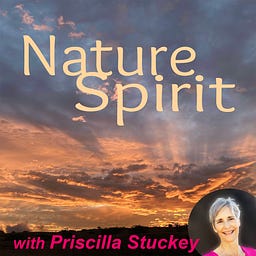
Lovely story about the avocado tree. And you’ve managed to encourage me rather than depress me about the world’s inequality. I love that we can all thrive if we share.
Oh, I’m so glad to hear that, Kathy! It IS possible. We get there by keeping on—keeping on envisioning a different world, believing it’s possible, doing what is ours to help make it be. And of course encouraging each other. All best to you in your piece of it.